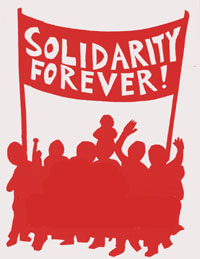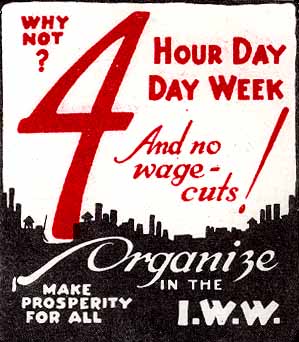 An overview and analysis of the recent Greek rebellion from libcom.org, which assesses what has been achieved and what can advance the movement.
An overview and analysis of the recent Greek rebellion from libcom.org, which assesses what has been achieved and what can advance the movement.In one scene, Molotov cocktails rain down in the night on a police station, their explosive flashes lighting up an otherwise dark street; in another, the national Christmas tree is torched by angry protesters. The current unrest in Greece seems to have taken place under the sign of fire, one that was ignited by the police killing of a teenager in Athens two weeks ago. Beyond the pyrotechnics, however, there has been another kind of conflagration: what started as concentrated rage at the police has assumed the dimensions of a social rebellion, moving beyond the actions of a “violent fringe” to involve large numbers of young people. While undoubtedly having specifically Greek characteristics, this burgeoning movement has attracted attention elsewhere. French officials have expressed worries about a “contagion” spreading to youth in their country. They have even gone so far as to withdraw a plan to reform French secondary education, citing the fear of a possible replay of the Greek events as a reason. There have been solidarity protests in a number of countries, including exemplary actions by Turkish anarchists eager to show their sympathy with their counterparts in Greece.
If the reaction to the police killing had been limited to skirmishes between cops and a few anarchists, however, the Greek events would have literally burned themselves out after a few days. What is interesting about the current situation is precisely how it grew into something larger, expanding from street battles to the occupation of secondary schools and university faculties, and showing not only combativeness but a sense of initiative and imagination, as in the dramatic seizure of television and radio stations by protesters who took control of the microphones and cameras. Viewers of a national NET television channel on December 16 saw the broadcast of a speech by the Greek prime minister interrupted by another emanating from the network studio and showing protesters there holding a banner that said, “Stop watching television. Take to the streets.” A day later, protesters draped large banners over parts of the Parthenon, transforming a tourist site into a forum from which to launch their call for a Europe-wide solidarity action on December 18. On December 18 itself, young demonstrators in Athens wore large bar codes to symbolize their rejection of being treated as objects, as commodities. These gestures were both poetic and to the point, showing the ingenuity of the movement.
As the counterattack against the police turned into a broader offensive at the end of the first week’s clashes, the revolutionary minority at the rebellion’s core—whom the Greek government and media sought to isolate and vilify as “criminals”—found that its anti-state and anti-capitalist message resonated with a generation facing bleak economic prospects. Moreover, as others—mainly, but not only, students—became involved, the rebellion no longer “belonged” to the anarchists, who in any case had never asserted any claim of ownership. Language considered extreme only a few weeks ago had now entered into a larger public discourse where many voices could express themselves. Amidst this polyphony, a kind of dialectics (διαλεκτική, argument or conversation, in the original Greek) was being practiced in the streets and occupied buildings of the country. The uprising had also ceased to be a purely Greek affair, as sizeable numbers of young immigrants—with their own long history of grievances against the police—joined the fray. There were indications of workers joining the movement. Significantly, on December 17, a group of “insurgent workers” occupied the headquarters of the main Greek trade union federation. The occupiers issued a declaration that, among other things, stated the goal of their seizure of the union building:
To open up this space for the first time—as a continuation of the social opening created by the insurrection itself—a space that has been built by our contributions, a space from which we were excluded. (…) We have to acquire a voice of our own, to meet up, to talk, to decide, and to act. Against the generalized attack we endure. The creation of
collective “grassroot” resistances is the only way.
Communiqué of the General Assembly of Insurgent Workers, Athens, December 17, 2008Arrayed against the rebellion have been the forces of the Greek state, abetted in some places by the fascist thugs of the Golden Dawn organization. Also playing their allotted role in counter-insurgency have been the political parties, including the Stalinists of the KKE (Communist Party of Greece), who issued vile calumnies of those fighting the police in the streets. More adroitly, the independent “new left” party SYRIZA (Coalition of the Left and Progress) has sought to position itself—by extending a kind of critical support to the protest movement—so as to be able to co-opt the discontent for its own electoral ends.
If the Greek movement of occupations becomes more generalized, then this rebellion may turn into the most significant revolt in Europe in the past 20 years, eclipsing the kinds of protest waves seen in France in recent years, for example. What makes the Greek uprising especially interesting has been its fluid, shifting character—or to use another good Greek word, its protean nature. It has been part insurrection, part protest movement, part movement of occupations, without being defined by any single category. However, this rebellion will develop further only to the extent that it widens and deepens “the social opening” referred to in the communiqué cited earlier, thereby becoming a truly mass phenomenon and not merely an affair of radical youth. There are signs that this is possible, but it will only happen if the revolt moves from pure negation to affirmation, beyond a necessary and militant No to a daring and visionary Yes. If this doesn’t occur, the movement is likely to devolve into a predictable, albeit interesting, kind of street theater. One of the rebellion’s most popular slogans, spray painted in English, has been “No Control.” In this, one hears an echo of the punk “No Future”; one might find a distant link to the most radical of the Spanish anarchists who proudly called themselves los incontrolados (the uncontrolled ones). And the difference in meaning is crucial: either the movement leads to self-organization, to the prefiguration of new social relationships, as in the Spanish Revolution, or it ends in a kind of nihilism.
By attacking both capital and the state, the Greek insurgents have shown that these are two sides of the same coin, a currency whose denominations are hierarchy, exclusion, and exploitation. They are not seeking another government but another society. Their rebellion has also been a timely reminder that the radical transformation of the world does not depend on the workings of some ineluctable “laws of history.” In addition to the necessary objective conditions, it also requires a decision on the part of large numbers of people to fight back, to make themselves heard, and to make change.
In the Byzantine era, Greek Fire was a devastating weapon made from a mixture of elements whose exact composition was a closely guarded secret. The present rebellion in Greece represents an altogether different kind of fire, one whose fuel derives from conditions found everywhere. Its heat has already torn holes in the shroud enveloping an era of diminished horizons and worsening social conditions. In place of resignation and fatalism, it offers other choices, putting the world in another light.
Imitation may be the sincerest form of flattery, but in the end it is still only that: imitation. Trying to blindly replicate the Greek scenario elsewhere is doomed to failure, especially in the U.S., where conditions are quite different. To begin with, the rules of engagement for cops here do not include much tolerance for Molotov cocktails (it is more than likely that American cops would start shooting), nor are there the kinds of “no go areas” (like the Greek universities) in which to shelter from the police.
To emulate the spirit of the Greek rebellion requires little, but yet requires a great deal: audacity and verve, but also creativity and intelligence.
Just as the last pages in the Greek events have not been written, this is an unfinished text.
We hope to expand it in the near future. Comments, additional information, and inquiries would be most welcome:COLLECTIVE REINVENTIONS
P.O. Box 61036
Palo Alto, CA 94306
contact@collectivereinventions.org
www.collectivereinventions.org
Type rest of the post here




















